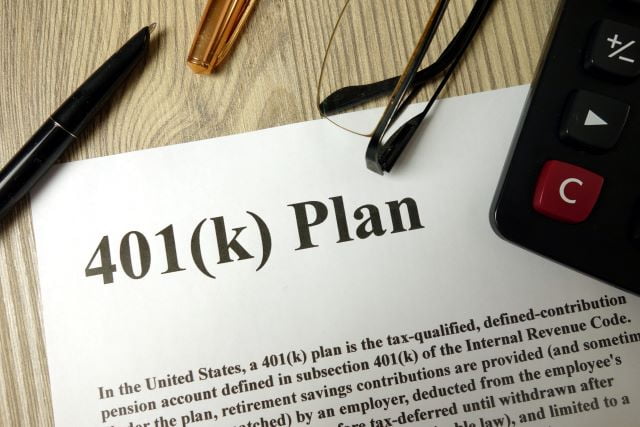
Congress created what we know today as 401(k) plans by adding a provision to the Revenue Act of 1978 which allowed employees to avoid taxation on deferred compensation. The plans didn’t begin to take off until 1981, when the IRS started allowing employees to fund plans through payroll deductions. The rise in popularity of 401(k) plans inevitably led to the downfall of the traditional defined benefit pension plan; companies are fans of 401(k) plans because they are cheaper and more predictable to fund than traditional pension plans. In 1981, there were nearly twice as many traditional defined benefit plans than defined contribution plans for plans with more than 100 participants. In 2017, there were over 10x as many defined contribution plans as there were traditional defined benefit plans for large employers.
The explosion of defined contribution plans means that more employees than ever have access to employer-sponsored tax-advantaged retirement savings vehicles. Many Americans that don’t come from money are able to become millionaires through their retirement plans. The National Study of Millionaires found that 8 out of 10 millionaires invested in their company’s 401(k), and most reached millionaire status at age 49.
How do 401(k)s work?
If you aren’t familiar with how 401(k) plans function they can be a little confusing, but they aren’t difficult to understand. You, the employee, can put money in, and it grows either tax-free (if you have a Roth option) or tax-deferred. With a Roth component, you will pay tax on the front-end, and qualified distributions are completely tax-free. Tax-deferred means that contributions go in pre-tax, and ordinary income taxes are paid at the time of distribution.
There are a few things you need to know about your own 401(k) plan. Make sure you know how much you need to contribute to get your employer match. Some employers match dollar-for-dollar up to a certain percentage of your salary, and some match $0.50 on the dollar, or even $0.25. In some plans, your employer may make a set contribution regardless of whether or not you make your own contributions. Your vesting schedule is also very important. If you leave your employer before a certain period of time, you may lose all or some of your employer contributions (your own contributions are always 100% vested, and you cannot lose them). There are several different vesting schedules, such as cliff vesting, where everything vests at once, and graded vesting, where employer contributions vest in increments. After you know the basics about retirement plans, it’s time to start maximizing your 401(k).
1. Get the employer match.
It might seem like common sense to always take advantage of your employer match, but 35% of employees don’t contribute enough to get the full match. Make sure you know how much of your salary your employer will match, and contribute enough to your 401(k) to get the free employer match. It’s difficult to beat a 100% or 50% return on your money that your employer could offer you.
2. Choose appropriate investments.
Not all 401(k) plans are created equal, and some have more attractive investment options than others. When choosing investments in your 401(k), you may want to look for low-cost index investments such as target-date funds. If your employer doesn’t offer any low-cost investment options, it never hurts to ask them to consider expanding your options; previous employees may have never asked, and it might not be difficult for your employer to add more investment options to your 401(k).
3. Max-out your 401(k).
At a certain point, after you’ve gotten the employer match and maxed out your IRA and HSA, you may then look to max-out your 401(k) plan. Employees can contribute up to $19,500 to their 401(k)s in 2020, and an additional $6,500 if they are age 50 or older. 401(k)s are one of the best ways to save tax-advantaged money for retirement, and eventually you may want to take full advantage of your 401(k).
Our latest episode is all about 401(k) plans. Learn more about how they came to be, how to use and make the most of your 401(k), and even some advanced planning strategies to stretch your dollars even further. Watch our latest show, “Are You Using Your 401(k) the WRONG Way?”, on YouTube below.













